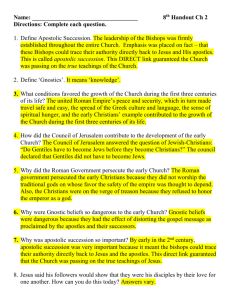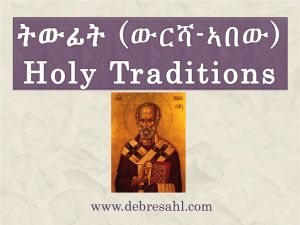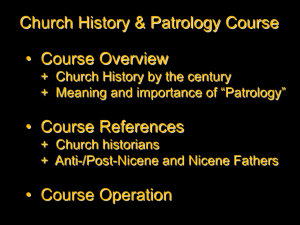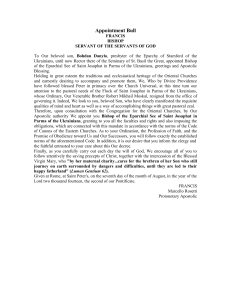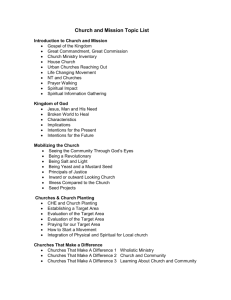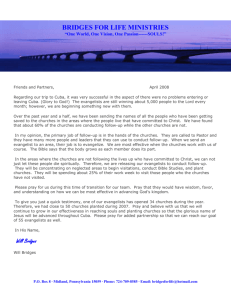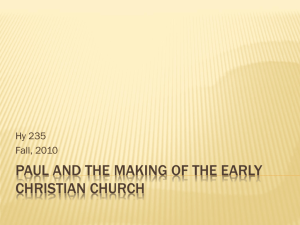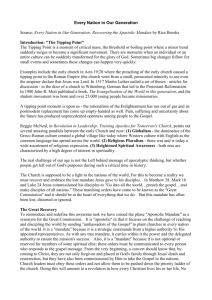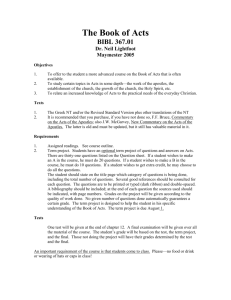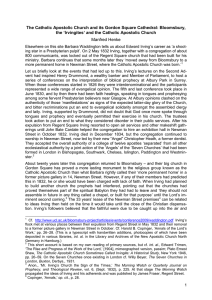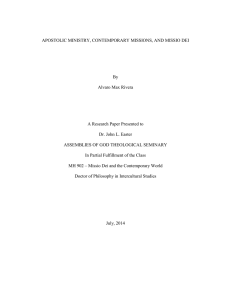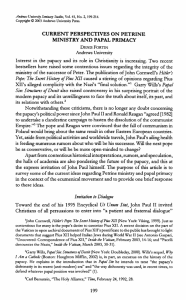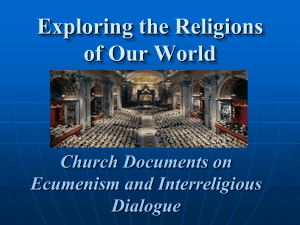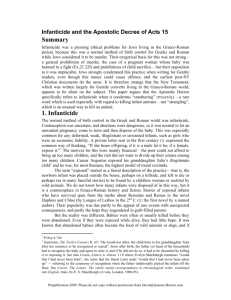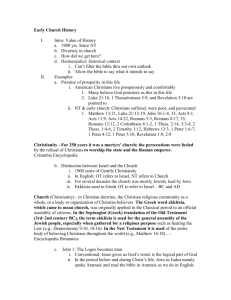BNEW 213 – Acts of the Apostles – Bruce McLarty – Spring 2006
advertisement
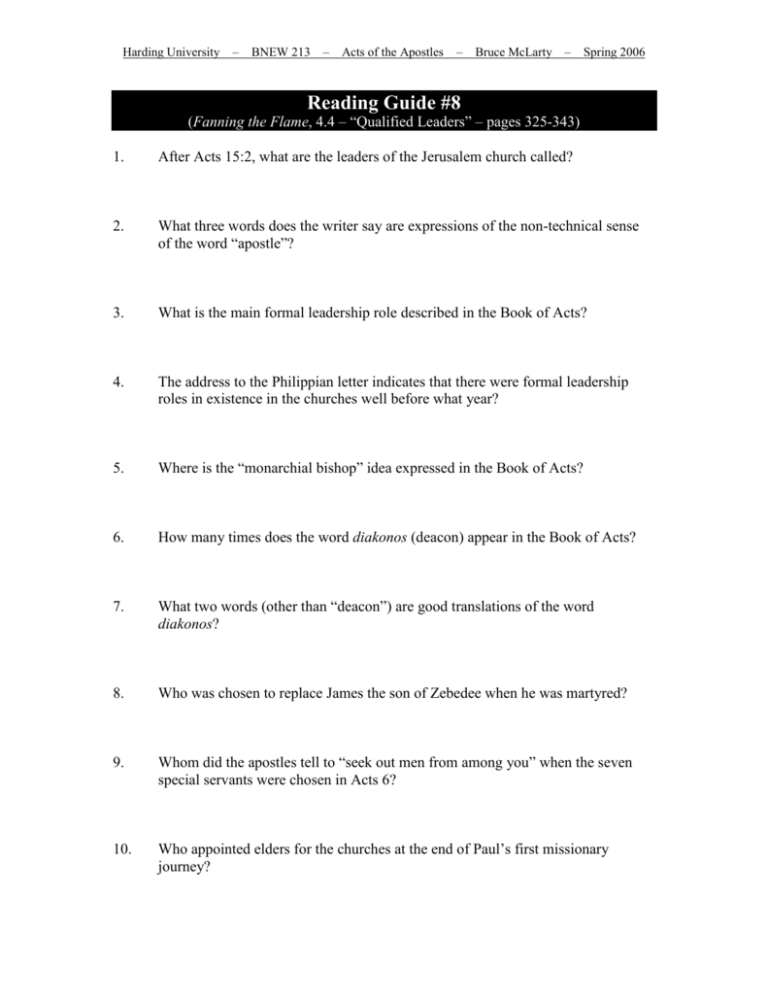
Harding University – BNEW 213 – Acts of the Apostles – Bruce McLarty – Spring 2006 Reading Guide #8 (Fanning the Flame, 4.4 – “Qualified Leaders” – pages 325-343) 1. After Acts 15:2, what are the leaders of the Jerusalem church called? 2. What three words does the writer say are expressions of the non-technical sense of the word “apostle”? 3. What is the main formal leadership role described in the Book of Acts? 4. The address to the Philippian letter indicates that there were formal leadership roles in existence in the churches well before what year? 5. Where is the “monarchial bishop” idea expressed in the Book of Acts? 6. How many times does the word diakonos (deacon) appear in the Book of Acts? 7. What two words (other than “deacon”) are good translations of the word diakonos? 8. Who was chosen to replace James the son of Zebedee when he was martyred? 9. Whom did the apostles tell to “seek out men from among you” when the seven special servants were chosen in Acts 6? 10. Who appointed elders for the churches at the end of Paul’s first missionary journey? Harding University – BNEW 213 – Acts of the Apostles – Bruce McLarty – Spring 2006 11. Bridges wrote, “In the book of Acts, as in the whole New Testament, church leadership depends on __________________ more than __________________." 12. The early church “functioned more like a ___________________ than an organization.” 13. Does Dr. Bridges maintain that the leadership structure in the New Testament remained uniform or that it changed significantly by the end of the apostolic period? 14. What is the year in which we find the first indication of the doctrine of apostolic succession? 15. In what or whom do most Protestants see apostolic authority? 16. What do Roman Catholics mean when they accuse Protestants of having a “paper pope”? 17. What are the two patterns by which ministers in the churches of Christ typically relate to the rest of church leadership? 18. What does Bridges believe is “the broad principle” of church leadership that must be honored?
